Dr. Brian Bird is the 2023 Grand Prize Winner from the School of Veterinary Medicine.
At the One Health Institute Laboratory (OHI), Director Dr. Brian Bird and a team of investigators and lab members explore the fundamental causes of disease transmission among wildlife, domesticated animals and people while also serving as a reference laboratory and training hub for the next generation of a One Health workforce.
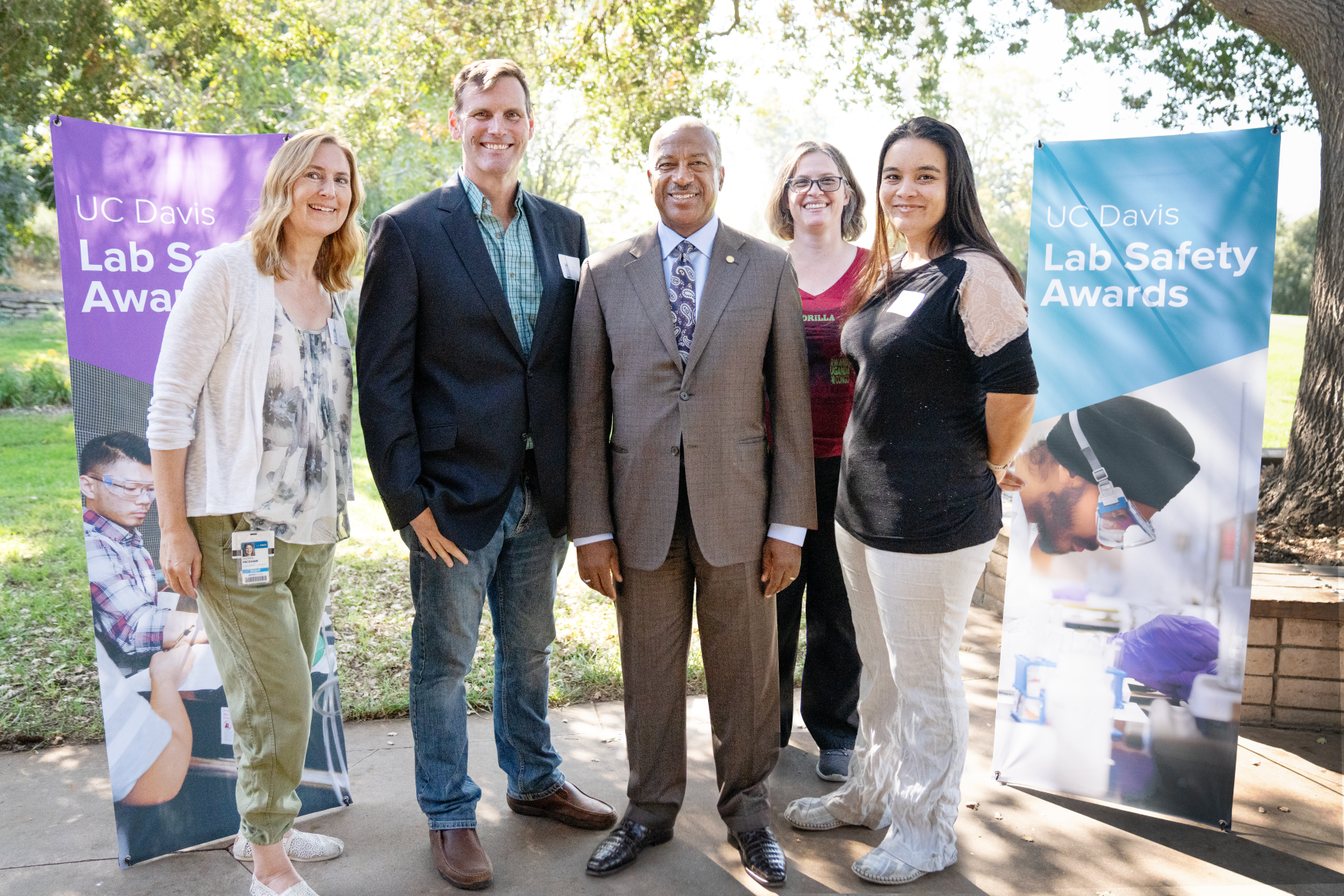
The work of the OHI lab is global in reach, ranging from the depths and coastlines of the Pacific ocean where they support investigations of mass mortality events of a variety of marine life, to the Amazon basin and across Africa where they work to detect zoonotic pathogens at the interface of wildlife, vectors, and people, to Tanzania where they are developing new innovative vaccines for people and animals for Rift Valley fever, to the mountain tops of Rwanda where the OHI team helps train researchers and veterinarians to diagnose emerging health threats to critically endangered mountain gorillas.
The work of the OHI Laboratory often involves handling potentially infectious biological specimens collected from around the world. Safety is therefore paramount.
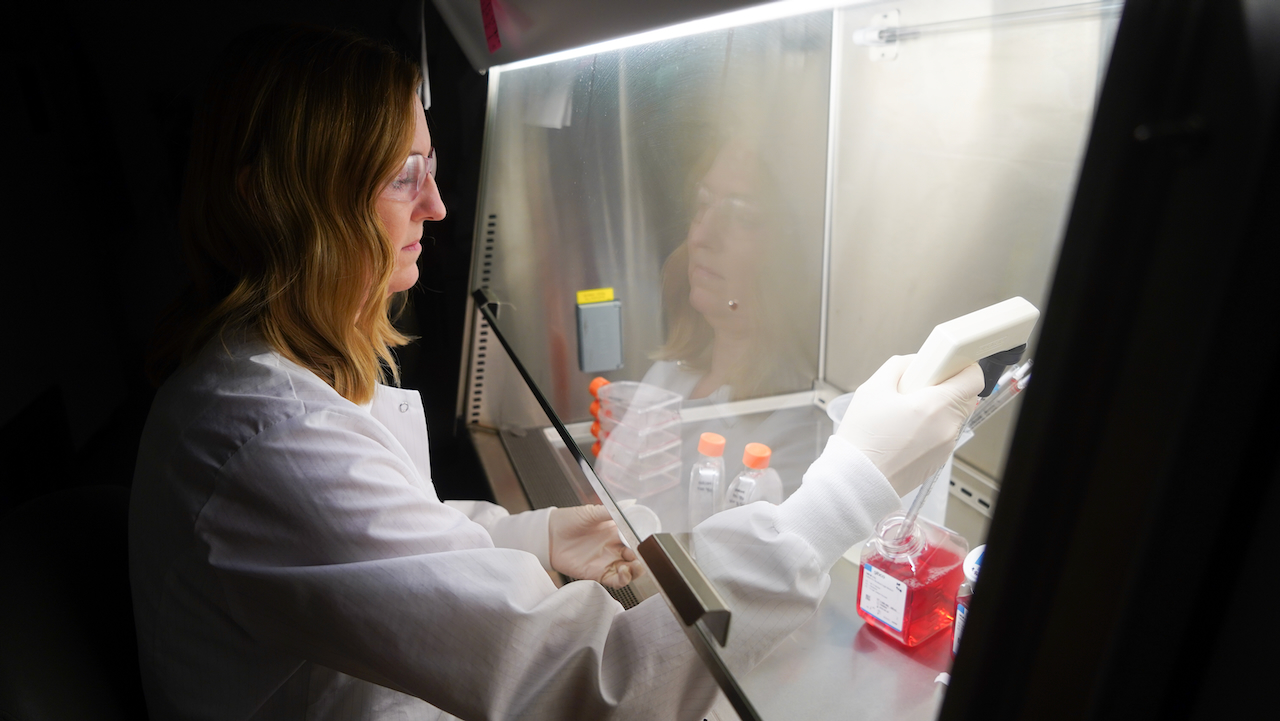
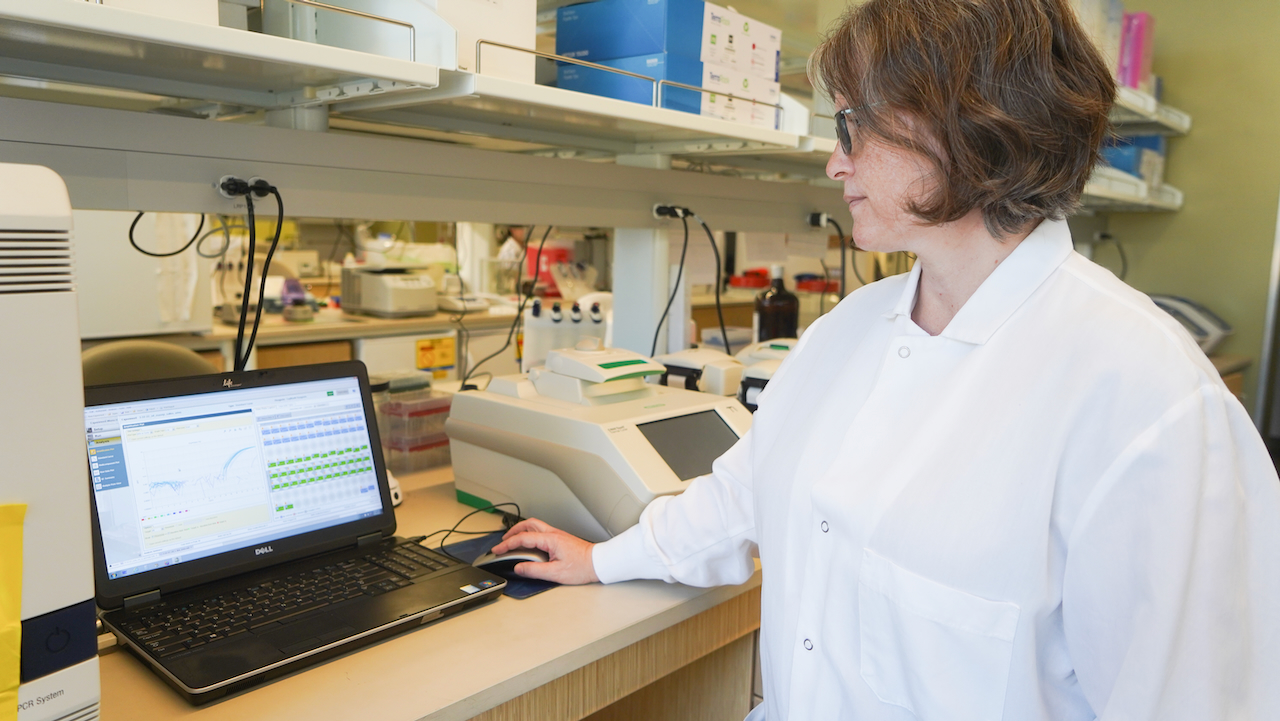
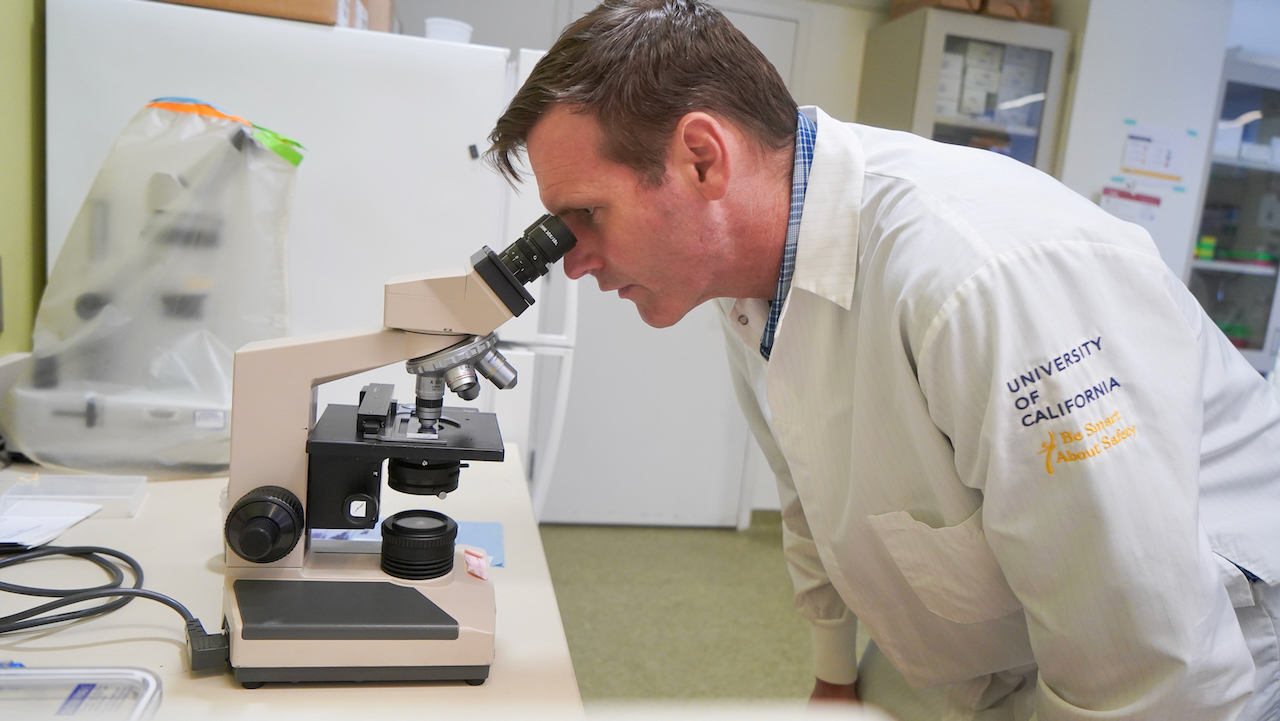
The team has developed an OHI Laboratory Specific Safety Plan tailored to the specific work environment and tasks conducted in the laboratory space. To ensure that any potential gaps in training and onboarding procedures are mitigated, the lab has implemented a standard operating procedure to assist the onboarding of new students, staff, and School of Veterinary Medicine (SVM) faculty that have research projects utilizing the OHI laboratory facility. These administrative controls ensure that laboratorians complete all required didactic and practical hands-on training needed to meet UC and OHI laboratory safety requirements prior to the initiation of research work.
In addition to a thorough onboarding process, the lab holds weekly one-hour meetings to share lessons learned and the latest safety guidance and inspection reports. Dr. Bird encourages this meeting to be a “safe space” to bring up any concerns without judgment so that corrective actions can be taken.
Upon evaluation, the LSP noted that “Dr. Bird's lab demonstrates a great willingness to ensure safety and safe practices. An example is laboratory manager Dr. Tracy Drazenovich requesting a customized version of our Lab Safety 201 class that was initially offered to lab personnel who had completed our Lab Safety 101 class.” The lab has also implemented a semi-annual in-person training/scenario drill with the SVM Environmental Health & Safety specialists to refresh and enhance the required online and other safety curriculum required by UC.
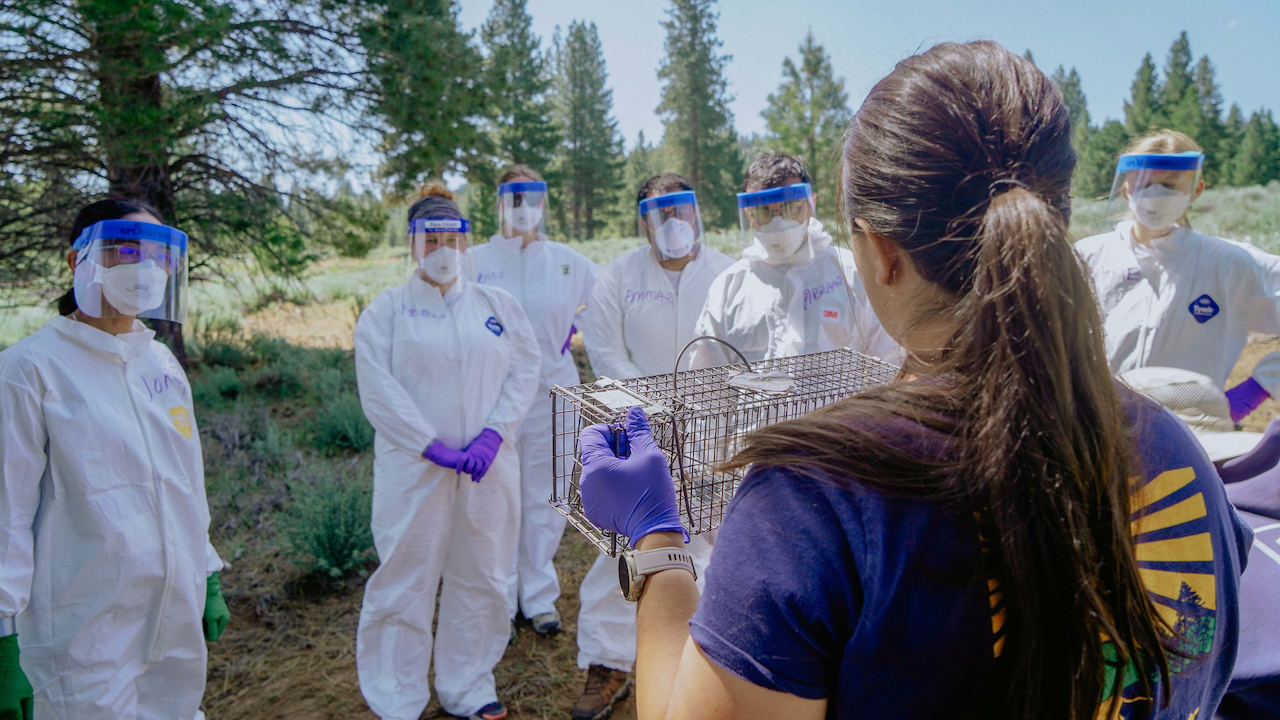
The OHI’s safety procedures have not only been developed for the UC Davis campus, but are also implemented in the lab’s field work at remote locations in California and across Africa and Asia. For laboratorians and staff working in the field, the OHI Lab has developed a highly interactive “PPE and Biosafety Olympics” practical session to help students, staff, and visiting researchers become familiar with the proper and improper uses of PPE during different fieldwork settings and scenarios. This training has been delivered to over 150 participants from over 30 countries.
Safety is at the center of all the work we do, and in the coming years we hope to continue and expand our work on globally impactful diseases through the development of innovative detection approaches and countermeasure development,” said Dr. Bird.
“Part of this will be ensuring that our staff and trainees who are the next generation of laboratory and field-investigation scientists are equipped with the training and knowledge needed to conduct their work safely and efficiently around the world.”